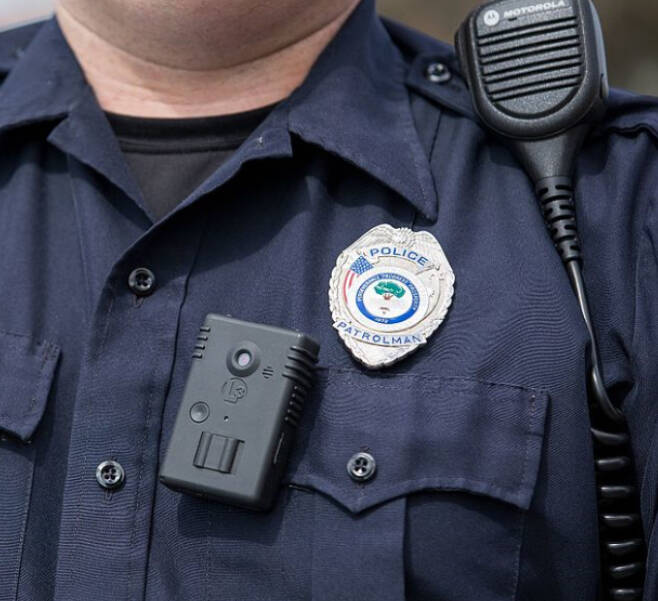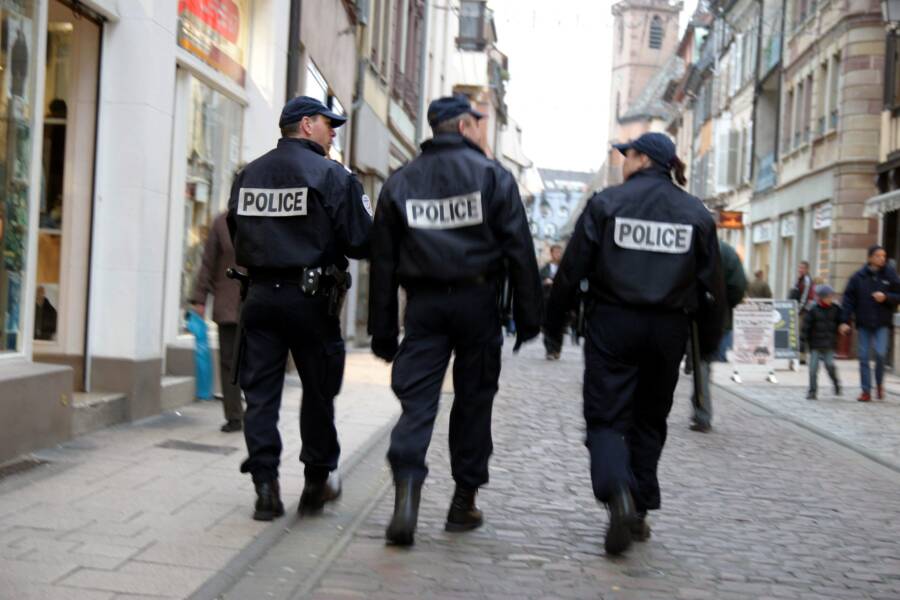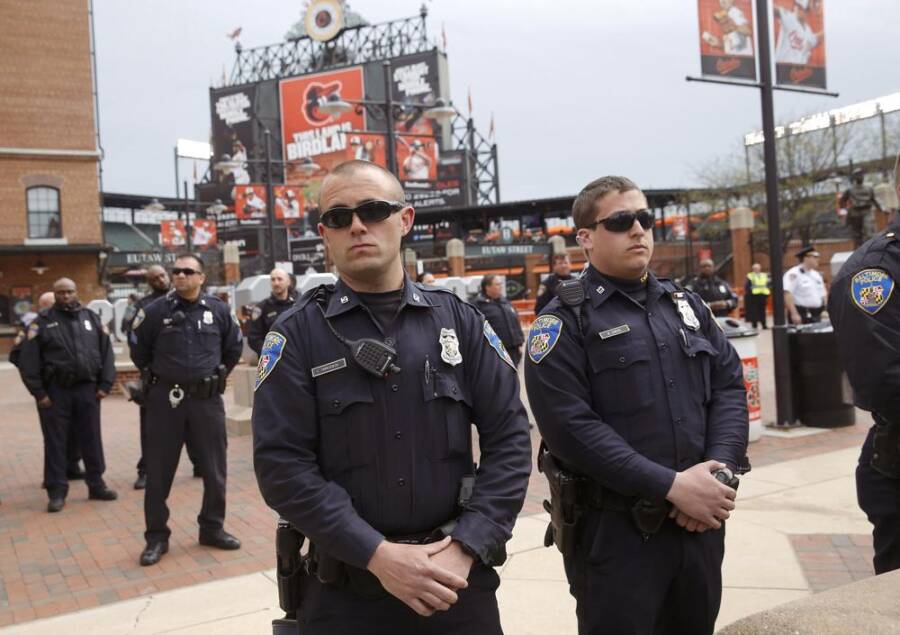The United States of America has a grim past regarding cop violence. This new study urges us to focus on more factors than race when looking at fatal shootings.

CC0 Public DomainThe race of a cop does not predict the race of a victim in a fatal shooting, according to this study.
If you’ve kept up with the avalanche of heartbreaking media reports regarding police violence against people of color in the United States, you’ve likely targeted your harbored anger against any white police officer you’ve come across.
That’s because it’s commonly believed that white officers are more likely to act off racial bias when confronted with a minority civilian in a violent situation than a non-white officer is. A new study by Michigan State University (MSU) and the University of Maryland (UM), however, aimed to test whether or not this is true.
The study found that white officers are not actually any more likely than non-white officers to shoot a minority civilian.
This question proved important for the study’s authors because a common solution to stopping police violence against minority citizens is often to hire more non-white cops.
The consequent research by co-author and MSU psychology professor Joseph Cesario was published in the Proceedings of the National Academy of Sciences.
Ultimately, the research — and whether it’s built on fact and integrity — should lead you to your own conclusions.

Wikimedia CommonsThe standardization of body cameras on police officers was intended to deter the use of excessive force, but a 2017 study found it had nearly no impact at all.
The subject has long been inherently controversial: most of us believe there’s an epidemic of preventable killings against innocent minorities on behalf of the police. Others feel that media sensationalization has simply made it appear as such.
According to an interview Phys, Cesario believes that “Until now, there’s never been a systematic, nationwide study to determine the characteristics of police involved in fatal officer-involved shootings.”
“There are so many examples of people saying that when black citizens are shot by police, it’s white officers shooting them. In fact, our findings show no support for the idea that white officers are biased in shooting black citizens.”
It’s important to note that Cesario is in no way claiming that there aren’t white police officers who have shot and killed people of color out of racial bias. Rather, he is trying to show through research that white officers are not any more likely than a non-white officer to shoot a citizen simply because of their race.
Cesario and his team created an independent database that culled from a broad range of official statistics, facts, and figures. They first cataloged every single police shooting that occurred in 2015. Together with co-author David Johnson from UM, they then contacted every single police department that had a fatal police shooting that year.
They then recorded the race, sex, and years of experience for every officer involved in every incident. To top it off, they sifted through databases regarding police shootings from media outlets like The Washington Post and The Guardian.
“We found that the race of the officer doesn’t matter when it comes to predicting whether black or white citizens are shot,” Cesario said. “If anything, black officers are more likely to shoot black citizens, but this is because black officers are drawn from the same population that they police. So, the more black citizens in a community, the more black officers there are.”
There’s both good news and bad news to this discovery. The silver lining, should this data reflect day to day reality, is that it isn’t the racial bias of white cops relative to black cops that impacts fatal shootings.
The bad news is that a common agreed-upon policy change — hiring more cops of color to reduce fatal shootings — doesn’t appear to be a solution based on this data. Should this research prove accurate, it’s simply a band-aid for a skewed perspective.
Johnson said this notion was of primary concern because countless academics, particularly in his own field of psychology, do insist that the race of the officer severely influences fatal shootings. In turn, the media has focused excessively on only those cases — making the rare instances it does affect those shootings seem like the lion’s share.
“I think that you see that in reporting on individual shootings, where they’ll mention the race of the officer,” Johnson told NPR. “And the reason that they mention that is because it’s perceived as being relevant. So what we did was, for the first time, tested that assumption.”
Johnson explained that this study isn’t meant to deny the role of race, but rather, narrow down where race affects policing. He also said that the research raises questions regarding whether this band-aid of hiring more cops of color is even a solution to fewer black people getting shot.
It’s important to remember that that is, after all, what any sane American wants — fewer innocent people getting killed by those meant to protect us.
The joint-university study also found that the glaring majority — between 90 and 95 percent — of civilians shot by cops were either actively attacking police or citizens when they were shot. Ninety percent of those civilians were also armed when they were shot.
Thus, these heartrending incidents of accidental shootings (such as when an officer mistakes a phone for a gun) are not actually the norm based on this data — no matter how often they’re filling national airwaves.
Again, this is not to say that there aren’t racist police officers who have made choices based off of their own hateful bias.
“We hear about the really horrendous and tragic cases of police shootings for a reason: they’re awful cases, they have major implications for police-community relations and so they should get attention,” said Cesario.
“But, this ends up skewing perceptions about police shootings and leads people to believe that all fatal shootings are similar to the ones we hear about. That’s just not the case.”
The case could be that there are instances of mental illness amongst cops that do fuel their violence. “It was truly striking and we didn’t recognize just how many there were,” added Cesario. “This shows how under-appreciated mental health is in the national discussion of fatal officer shootings.”

Wikimedia CommonsCesario strongly suggested looking at mental health, among other factors, regarding fatal police shootings.
The shortcoming of this research, however, is that regardless of the race of the cop who shot the minority civilian, that minority civilian was nonetheless shot — and is representative of a larger trend of non-white civilians facing violence at the hands of cops both black and white. Therefore, simply hiring more black cops will not necessarily stop the violence against minority citizens at the hands of authority.
Indeed, the study certainly has its share of critics, including Philip Atiba Goff, an established researcher of race and criminal justice and co-founder of the Center for Policing Equity.
Goff said that, while impressed by and appreciative of the fresh approach to these statistics through gathering unprecedented data, the researchers didn’t come up with enough of a conclusion.
“It doesn’t do very much to move us towards an understanding of how much are police responsible for racial disparities. And the things it does sort of lead us to are things that we already knew.”

Wikimedia CommonsAccording to a new ACLU Maryland report, 109 people died in the state in police encounters between 2010 and 2014. Two-thirds, or 75 people, were black. Maryland’s overall population, the report notes, is 29 percent black.
“Racism is not a thing that white people can have and black people can’t. And nobody’s research would suggest that it does. That’s a really wild premise based in no research that no serious scientist should be able to say out loud and then get it published.”
Bias trainer and criminologist Lorie Fridell, meanwhile, countered these claims.
“People can have biases against their own demographic groups,” she said. “Women can have biases about women. Blacks can have biases about blacks. It is incorrect to assume that any issue of bias in policing is brought to us by white males.”
“The defenders of police, of course, will cherry-pick the studies that show no bias. And the other side will cherry-pick the ones that do. But we don’t have any definitive studies on this.”
Ultimately, finding common ground in such a sensitive and important issue is a heartening first step — because we all want this needless violence, no matter how rare or ubiquitous, to stop.
After learning about the study that suggests white police officers are no more likely to shoot people of color than black police officers are, read about the West Virginia cop who was fired for choosing not to shoot a man. Then, learn about the police officers who wrongly subjected a woman to an 11-minute vaginal search — and got to keep their jobs.





